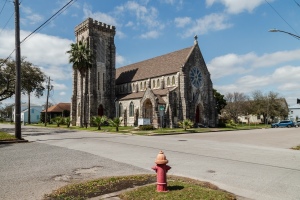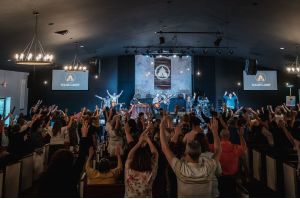Teaching the Bible in Public Schools
Much to Admire
At first glance, you might think the wrong magazine had landed on the rack in the grocery store check-out line next to Newsweek and People magazine. The cover features a picture of a black-and-yellow CliffsNotes version of the Bible. What is this, you think—the annual Easter-season bashing of Christians?
But then you read the title of this cover story: "Why We Should Teach the Bible in Public School."
Even more amazing, this is Time magazine's cover story. And the story reveals how popular Bible literacy classes have become—and why almost no one is complaining about them.
According to Time, the number of public schools offering classes on the Bible is rising rapidly. Two Bible curricula are now being studied in 460 school districts in thirty-seven states. Thousands of other districts have expressed interest in them.
Which leads to a question: How on earth are public schools getting away with teaching the Bible?
The answer is making sure, as the Supreme Court put it years ago, that if the Bible is taught, it must be "presented objectively as part of a secular program of education."
Meeting that criterion was the goal of the Bible Literacy Project, led by my friend Chuck Stetson, one of our Centurion graduates. About eighteen months ago, the project unveiled a new high school textbook called The Bible and Its Influence. It looks at the Bible as literature and helps kids understand its impact on literature, the arts, and history.
Great care has been taken to create a textbook that avoids favoring any canon or doctrine. It's also been approved by constitutional scholars.
After observing Bible literacy classes in public schools, Time's excellent religion writer David Van Biema writes, "I could find little to object to here and much to admire."
Best of all, teenagers enjoy classes based on these books. Time quoted Rachel Williams, an 18-year-old who took a Bible literacy class at her Texas high school. She says the class has "gotten a lot of positive feedback. It's going to really rise in popularity."
This is good news, and no one can claim to be truly educated without knowing the contents of the Bible. Students will become familiar with the Bible's great themes and stories. They will read, with greater understanding, works by Herman Melville, John Locke, and Martin Luther King, whose writings are filled with biblical allusions.
And having once dipped into the Bible, I believe, they will be more inspired to read on their own. They may even consider joining a Bible study to learn more—that is, if somebody invites them. And they just might remember the Bible's stories and teachings when making decisions about whether to engage in casual sex or follow the crowd into crime.
Is your school district teaching Bible literacy classes? For more information about how to start one, visit our website, www.breakpoint.org.
When even liberal magazines like Time think it is a good idea for kids to study the Bible, you and I have no excuse for not making sure local kids have every chance to do exactly that. They will learn the context of greatest book ever written—and they will encounter, perhaps for the first time, the greatest life ever lived.
Thanks, Time, for a great Easter gift.
_________________________________________________
From BreakPoint®, March 28, 2007, Copyright 2007, Prison Fellowship Ministries. Reprinted with the permission of Prison Fellowship Ministries. All rights reserved. May not be reproduced or distributed without the express written permission of Prison Fellowship Ministries. "BreakPoint®" and "Prison Fellowship Ministries®" are registered trademarks of Prison Fellowship Ministries





























